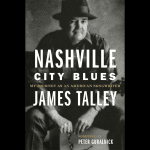the first end of the year list: old is the “new” new
I’ve often mocked the year end lists that come flooding the blogosphere around Thanksgiving, so I thought this year I’d jump on the bandwagon and get one of the first ones published. The problem is that there was hardly any new music this year that knocked me out. Not to say there haven’t been some great releases because you know that ain’t so, but as I flip through the library I could barely come up with five killer releases. But what I did notice was that the majority of either my uploads or purchases this past year have been of older music. Much older.
Blame it on Ken Burns, but although I’ve never been much of a jazz listener, the box set from his documentary The Story of American Music has been on heavy rotation (on the hard drive) and specifically Discs One and Two. I’ve become immersed in the early jazz from the twenties and thirties featuring Louie Armstrong, King Oliver, Jelly Roll Morton, Fletcher Henderson and Duke Ellington. (He skips Sidney Bechet but I’m listening to him too.) I think the reason I never got into jazz before was because I was listening to the wrong stuff. My ears don’t cotton to Coltrane and Davis and beyond the bop but now I understand why I love Woody Allen movies so much.
I stood about two feet away from Pete Seeger this summer and he smiled and waved. That was enough to make me dig out my Anthology of American Folk Music box set which was edited by Harry Smith, and get it digitized so I could start enjoying it again. I was born the same year that these albums originally came out (1952) and I listened to them first when I was about twelve, later in my thirties and now I’m coming back to them again. If you don’t own this set and you like Americana and folk and blues…get one for Christmas.
Over here in the US we have public television stations and about three or four times a year they have pledge drives. That entails a couple of weeks of special programming that’s interrupted every twenty or thirty minutes for a pitch to make you feel guilty and hopefully motivate you to call the toll free number to donate some dough. One of the most popular series these past few years has been the re-presentation of doo wop music with the twist being that they find (most) of the original artists, dress them up in colorful stage costumes, put them in front of a first class orchestra and have them sing a couple of their hits in front of an audience of people about their same age. In other words, old. While I find it interesting sometimes to see these mostly non-career retired musicians get their fifteen minutes of fame again, it has made me yearn for the real thing. Rhino Record’s The Doo Wop Box is probably the definitive collection and the sound quality is excellent as are the liner notes.
If you have the need to hear some Ira and Charlie, there is no shortage of Louvin Brother albums still in print to choose from. And so far, every one I’ve scored sounds great. My favorite at the moment (and it’s available as a download as well as on CD) is Live at New River Ranch. Ditto with the availability for the Carter Family’s catalog…lots to choose from. This year I’ve been listening to the music they did in New York from 1936-37 as well as 1934’s Longing for Old Virginia.
Mississippi John Hurt is an artist I listened to a bit in the sixties and just sort of pushed to the side. His name has been popping up lately for reasons unknown, so I got the 1928 Okeh Record’s set called Avalon Blues. After doing this set he vanished, and didn’t record again for thirty years. And eight years later he was dead.
After watching the film American Splendor a few weeks ago with my kid, I tracked down a copy of R. Crumb’s Heroes of Blues, Jazz and Country. Gus Cannon’s Jug Stompers, Dock Boggs, the aforementioned Jelly Roll Morton and King Oliver, Crockett’s Kentucky Mountaineers, Blind Willie McTell and Jimmy Noone to name a few. There’s a book and a deck of cards to go with the music.
Finally, I owe a great big word of thanks and appreciation to Kurt B. Reighley for his book United States of Americana: Backyard Chickens, Burlesque Beauties, and Handmade Bitters: A Field Guide to the New American Roots Movement . While I started looking back at this music before the book came out, it was a nice bookend and great inspiration to my new interest in the old.




